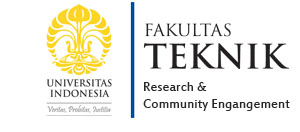| Authors | Harris Simaremare, Abdelhafid Abouaissa, Riri Fitri Sari and Pascal Lorenz |
|---|---|
| Publication Name | International Journal of Communication Systems, Int. J. Commun. Syst |
| Abstract | SUMMARYA mobile ad hoc networks (MANET) is a decentralized, self-organizing, infrastructure-less network and adaptive gathering of independent mobile nodes. Because of the unique characteristics of MANET, the major issues to develop a routing protocol in MANET are the security aspect and the network performance. In this paper, we propose a new secure protocol called Trust Ad Hoc On-demand Distance Vector (AODV) using trust mechanism. Communication packets are only sent to the trusted neighbor nodes. Trust calculation is based on the behaviors and activities information of each node. It is divided in to trust global (TG) and trust local (TL). TG is a trust calculation based on the total of received routing packets and the total of sending routing packets. TL is a comparison between total received packets and total forwarded packets by neighbor node from specific nodes. Nodes conclude the total trust level of its neighbors by accumulating the TL and TG values. The performance of Trust AODV is evaluated under denial of service/distributed denial of service (DOS/DDOS) attack using network simulator NS-2. It is compared with the Trust Cross Layer Secure (TCLS) protocol. Simulation results show that the Trust AODV has a better performance than TCLS protocol in terms of end-to-end delay, packet delivery ratio, and overhead. Next, we improve the performance of Trust AODV using ant algorithm. The proposed protocol is called Trust AODV + Ant. The implementation of ant algorithm in the proposed secure protocol is by adding an ant agent to put the positive pheromone in the node if the node is trusted. Ant agent is represented as a routing packet. The pheromone value is saved in the routing table of the node. We modified the original routing table by adding the pheromone value field. The path communication is selected based on the pheromone concentration and the shortest path. Trust AODV + Ant is compared with simple ant routing algorithm (SARA), AODV, and Trust AODV under DOS/DDOS attacks in terms of performance. Simulation results show that the packet delivery ratio and throughput of the Trust AODV increase after using ant algorithm. However, in terms of end-to-end delay, there is no significant improvement. Copyright © 2014 John Wiley & Sons, Ltd. |
| Publisher | --- |
| ISSN | --- |
| Page | --- |
| Volume | --- |
| Impact Factor (JCR) | --- |
| SJR | --- |
| Ranking Quartile | --- |
| Website | https://www.researchgate.net/publication/264125054_Security_and_performance_enhancement_of_AODV_routing_protocol |
Security and performance enhancement of AODV routing protocol
LATEST POST
9 Peneliti FTUI Sukses Memperoleh Hibah RIIM-BRIN 2025 pada Kompetisi Eksternal Batch Ketiga
FT UI Bantu Pulihkan Aceh Tengah, Padukan Misi Kemanusiaan dengan Mitigasi Berbasis Teknologi
CALL FOR PROPOSAL: Penerimaan Hibah Seed Funding Publikasi FTUI 2025
CALL FOR PROPOSAL: Penerimaan Hibah Osaka Gas Tahun 2025
6 Dosen Fakultas Teknik Universitas Indonesia Catatkan 8 Paten
POPULAR NEWS
LATEST VIDEOS
LOGIN






